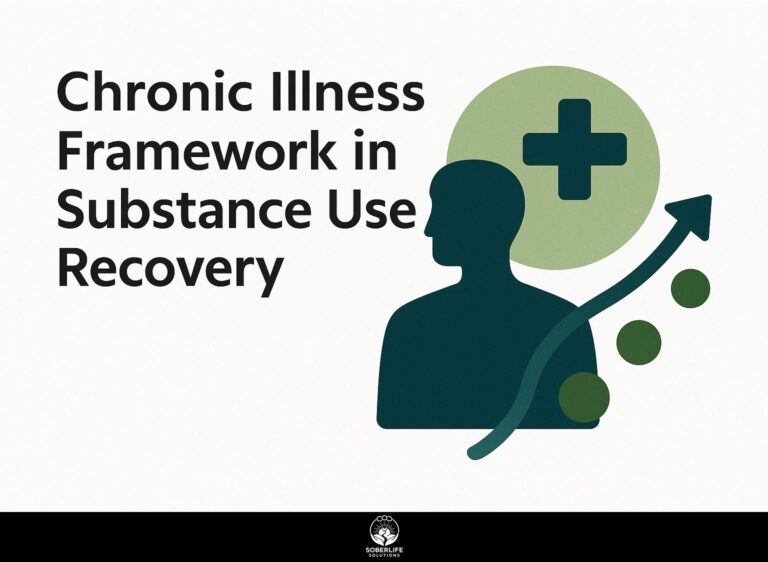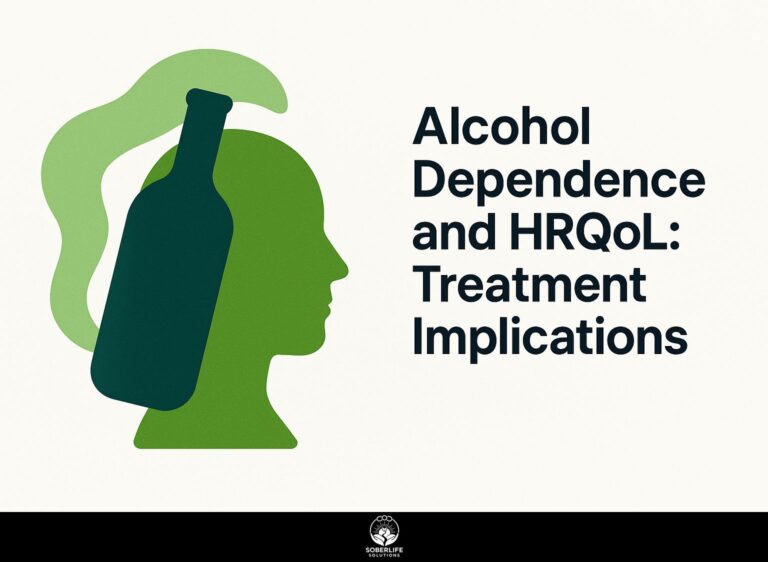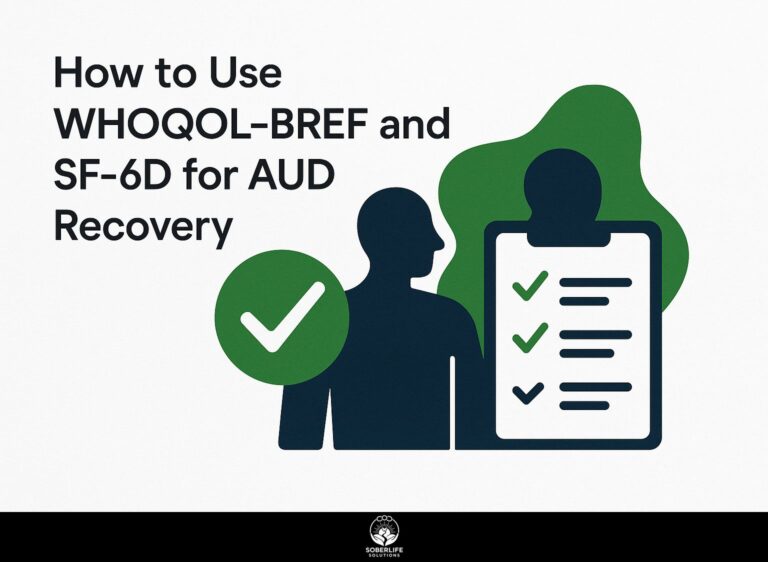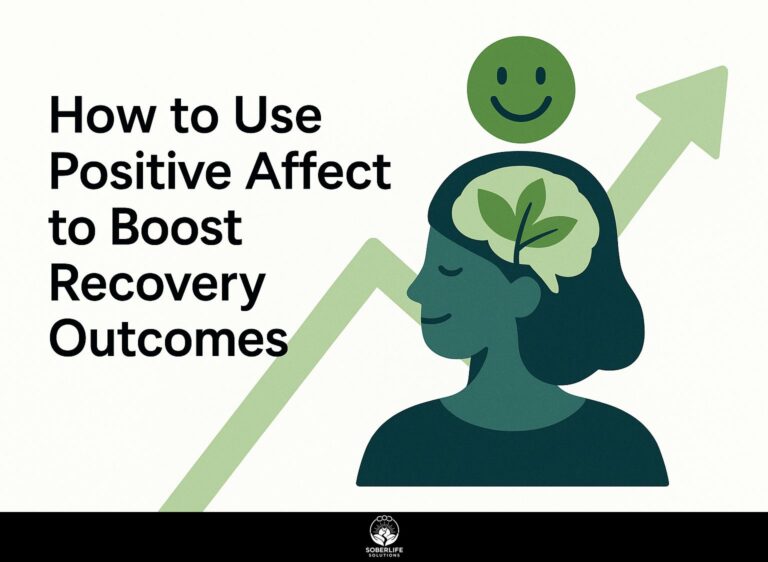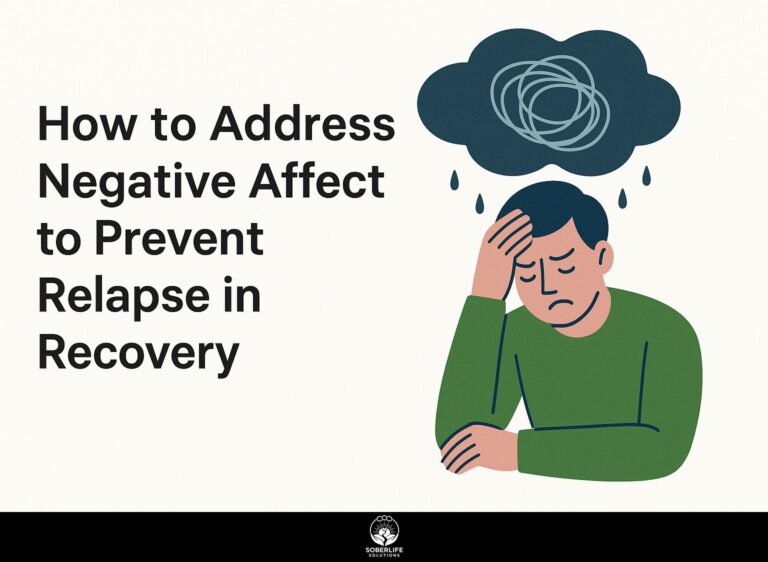Coping with Post-Treatment Challenges: Strategies for High QoL
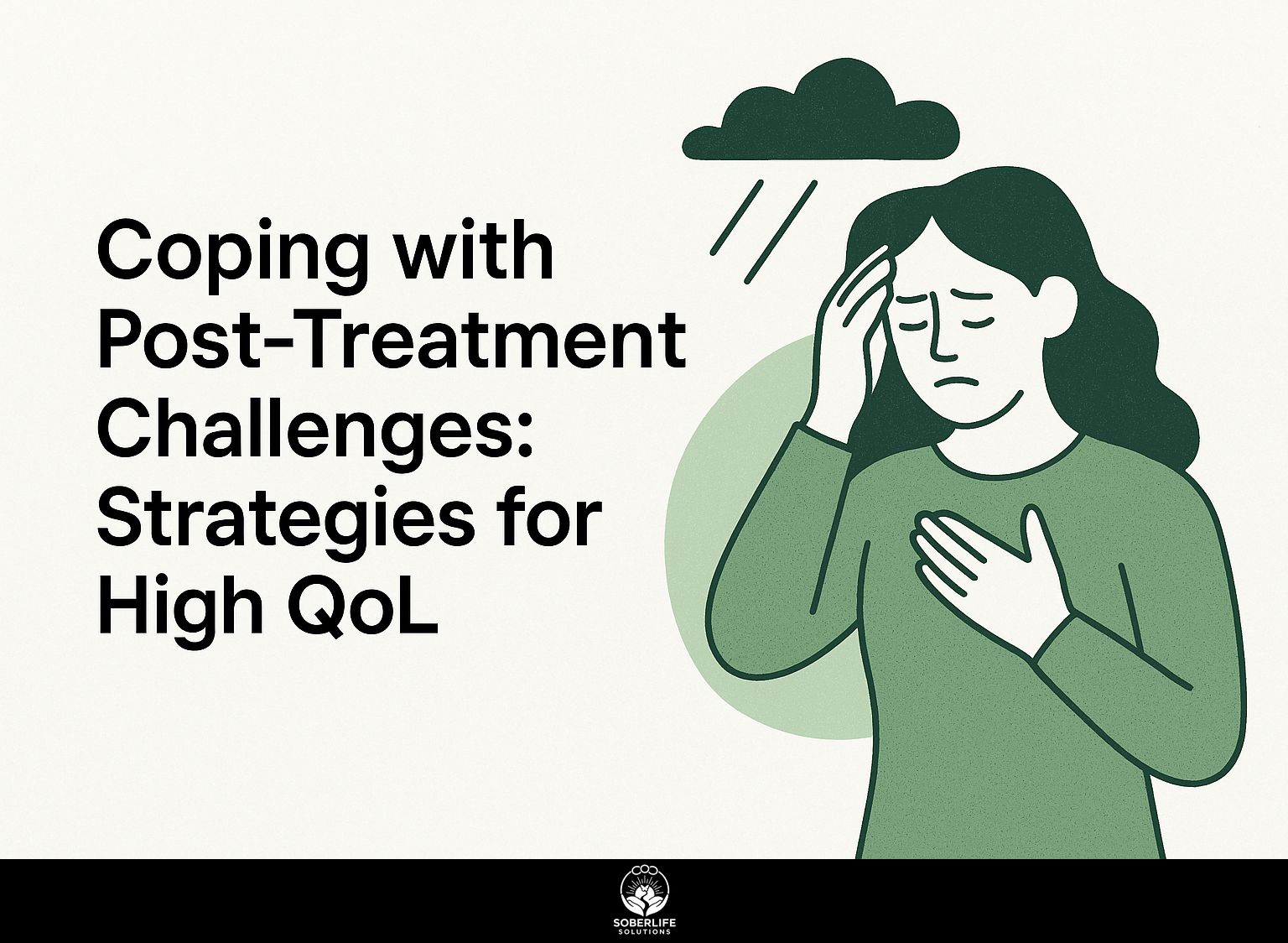
Dealing with challenges after treatment is important for cancer survivors trying to improve their quality of life. The Mayo Clinic and the American Cancer Society say that having emotional support and good ways to handle stress are important in getting better. This article looks at practical ways to handle these problems, such as tips for keeping a balanced diet and creating a strong support network. Learn how to find happiness and strength on your path to health.
Key Takeaways:
Understanding Post-Treatment Challenges
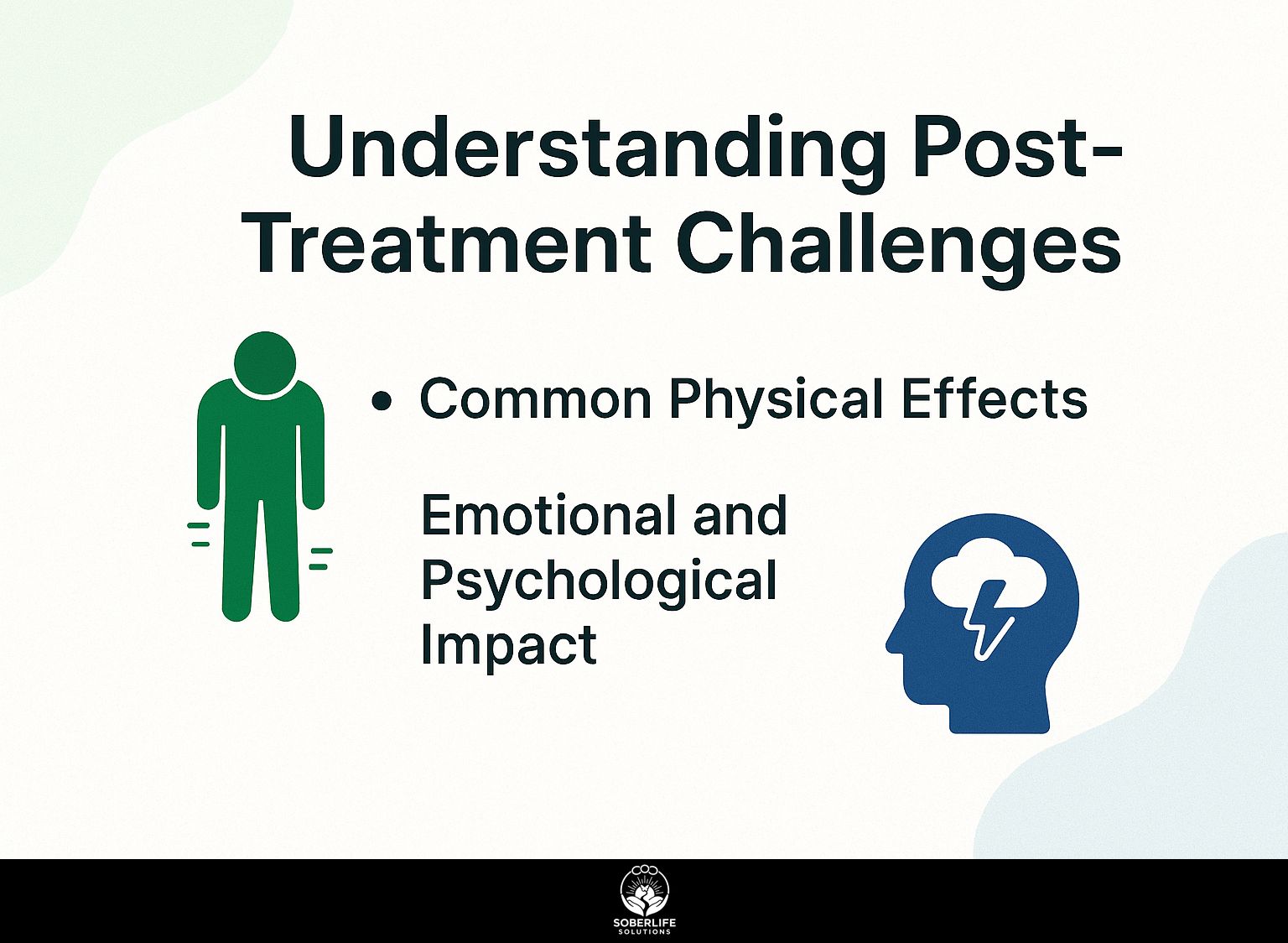
After treatment, cancer survivors can face different challenges that may greatly affect their physical health, emotions, and general well-being.
Common Physical Effects
Common physical effects after cancer treatment include fatigue, weight fluctuations, and changes in physical health, which can persist for months or even years.
To manage fatigue effectively, aim for regular, moderate exercise such as walking, yoga, or swimming, pacing yourself to prevent burnout.
According to a study, up to 70% of survivors report ongoing fatigue, but engaging in light activities as little as 30 minutes, three times a week, can significantly improve energy levels. This aligns with findings from the National Cancer Institute, which offers detailed insights on managing fatigue through their resources on fatigue and cancer side effects.
Discussing your health needs with a doctor can help create a plan just for you. Personal trainers with experience in cancer recovery can offer extra help and encouragement for a safe and effective return to physical activity.
Emotional and Psychological Impact
Emotional and psychological impacts, such as anxiety and depression symptoms, are prevalent among cancer survivors, often exacerbating the overall quality of life.
To deal with these challenges, survivors can look into various coping methods.
- Joining support groups, like those offered by the American Cancer Society, can provide a shared space for experiences and emotions.
- Cognitive-behavioral therapy (CBT) has been shown to significantly help, with a study indicating that 60% of participants found reduced anxiety levels after therapy sessions. For those interested in understanding the clinical implications of CBT for cancer survivors, Healio’s study offers valuable insights.
- Engaging in mindfulness practices, such as meditation or yoga, can improve mental well-being, evidenced by an increase in reported life satisfaction among participants who practiced these techniques regularly.
Building a Support System
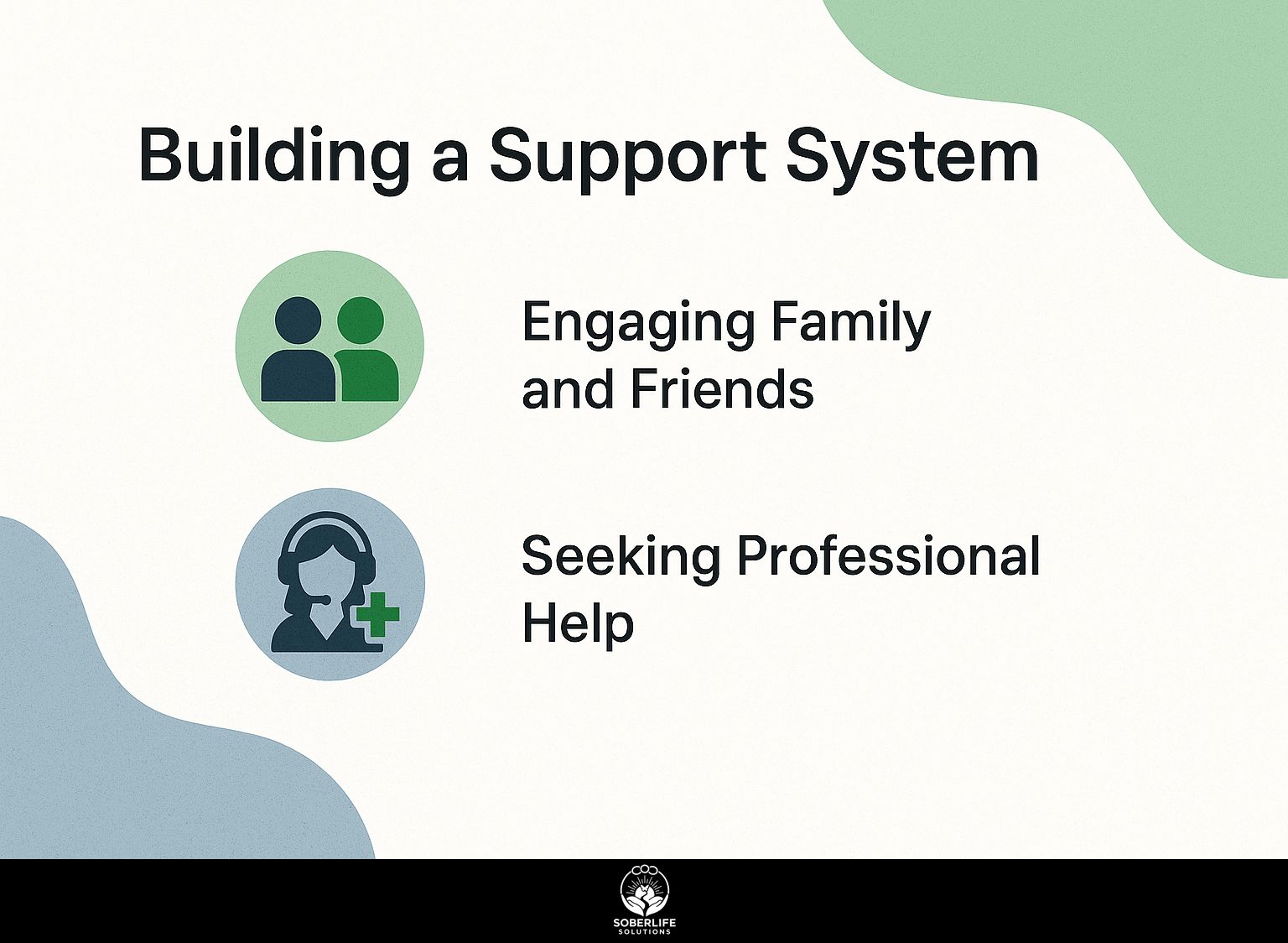
It is important for cancer survivors to have dependable people around to help with problems after treatment. They provide emotional support and practical help. A vital component of this support network can be found in peer support groups, where individuals share experiences and strategies for coping. Learning about the benefits of such groups offers deeper insights into their impact on recovery.
Engaging Family and Friends
Involving family and friends when someone is recovering from cancer can greatly improve emotional support and help with coping strategies.
To effectively involve loved ones, start by openly communicating specific needs and preferences. For example, if the survivor craves companionship during treatment sessions, let family members know they’re welcome to join.
Creating a support schedule can be immensely helpful, allowing flexibly organized visits or check-ins. Consider planning group activities that provide a sense of normalcy, like movie nights or nature walks.
These efforts build relationships and show both the survivor and their family how being together matters in recovery.
Seeking Professional Help
Consulting healthcare providers for professional help can equip cancer survivors with necessary tools and strategies to manage emotional challenges effectively.
Getting mental health help is important for recovery. Think about contacting local cancer organizations, which usually offer counseling services designed for survivors.
Platforms like BetterHelp or Talkspace offer online therapy that you can use from home, allowing you to get help without concerns about judgment or difficulties.
Joining support groups, either face-to-face or on the internet, helps build a sense of community and awareness. Techniques like mindfulness and writing in a journal can also help with managing emotions.
Bringing these resources together can improve strength and health.
Developing Healthy Routines
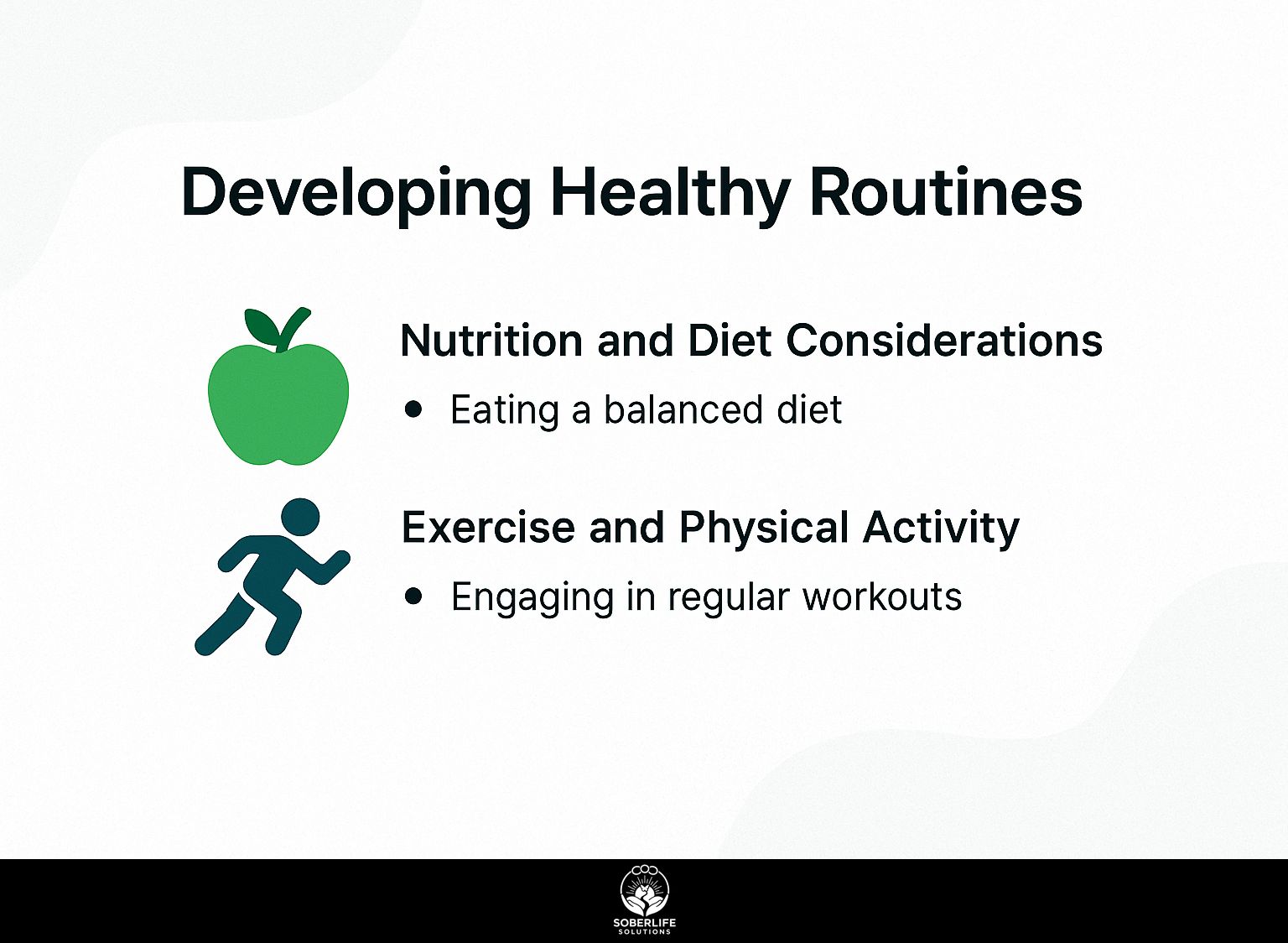
It’s important for cancer survivors to have good routines that include healthy eating and exercise to improve their life after treatment. To explore strategies for establishing these routines, you might find our insights on evening routines to prevent cravings particularly beneficial.
Nutrition and Diet Considerations
Adhering to dietary recommendations, such as a balanced diet rich in omega-3 fatty acids and healthy fats, can significantly benefit cancer survivors’ recovery.
Include more whole foods in your diet by adding leafy greens, berries, and nuts to your meals. Try to cut down on processed sugars by choosing fruit or yogurt instead of sugary snacks, and limit alcohol to one drink a day or less.
Think about using a multivitamin to cover any missing nutrients in your diet. Look at resources like the Mayo Clinic or speak with a registered dietitian for advice that’s right for you. Moreover, the American Cancer Society offers comprehensive guidelines on how to maintain a healthy diet post-treatment.
For meal planning, try incorporating a variety of colorful vegetables, lean proteins, and whole grains, ensuring you get a mix of essential nutrients throughout the week.
Exercise and Physical Activity
Regular exercise is essential for cancer survivors. It helps with physical health, weight control, and reducing anxiety symptoms.
Incorporating a mix of aerobic and strength training exercises can yield substantial benefits. For example, a weekly workout plan could include:
- 150 minutes of moderate aerobic activities like walking or cycling
- Two days of strength training using light weights or resistance bands
It’s important for survivors to talk to a personal trainer to adjust these workouts to fit their needs and any limitations they have. Research indicates that participants in structured exercise programs report up to a 20% decrease in depression symptoms, enhancing their overall well-being.
Practicing Mindfulness and Relaxation
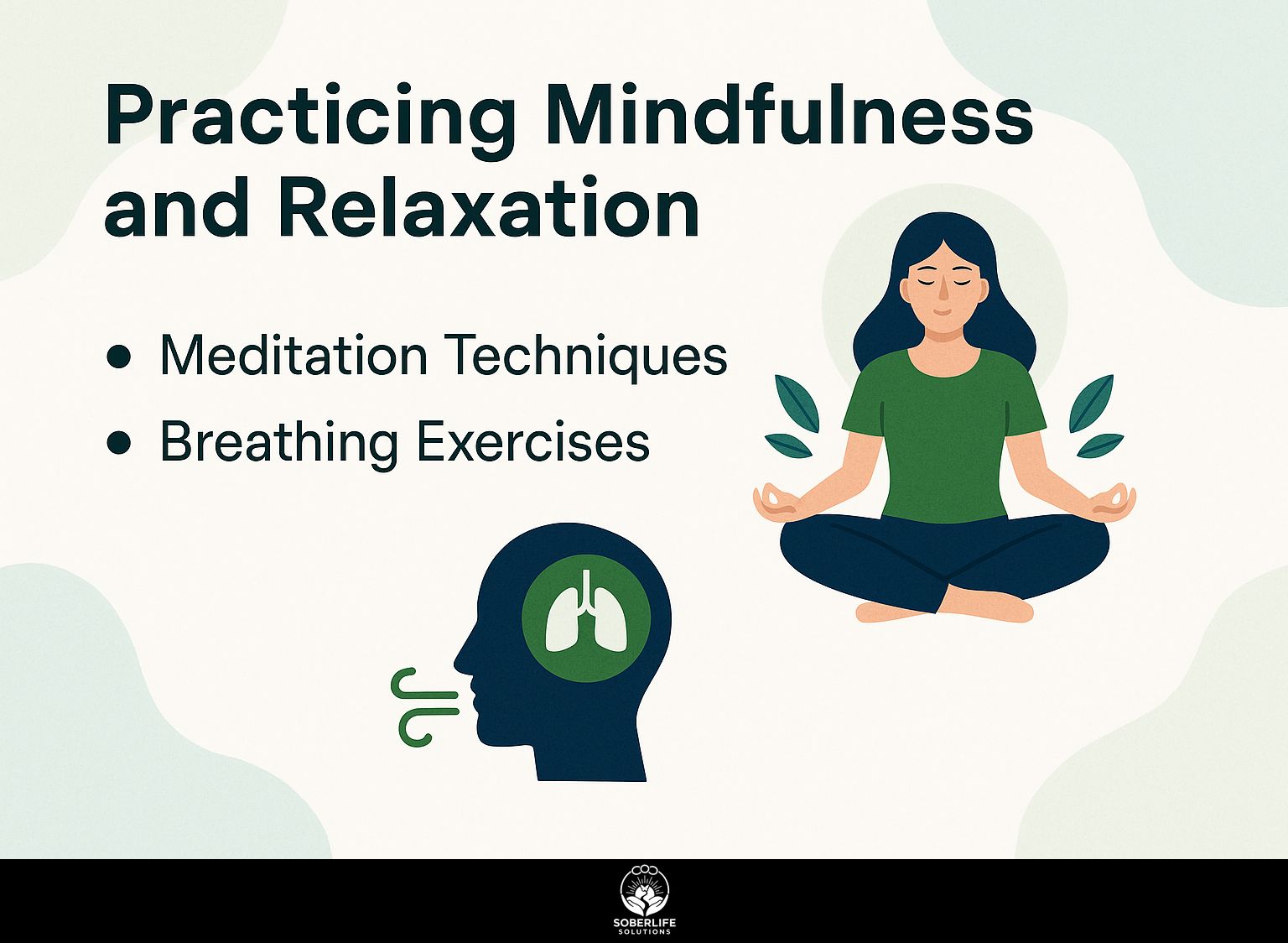
Cancer survivors can greatly benefit from practicing mindfulness and relaxation methods to handle stress and improve their emotional health. One valuable approach involves exploring various coping mechanisms that can enhance emotional resilience.
Meditation Techniques
Simple meditation techniques can be easily integrated into daily routines and have been shown to reduce stress and improve mental clarity.
To start practicing meditation, try these techniques:
- Guided imagery involves visualizing calming scenes, promoting relaxation.
- A body scan involves noticing physical feelings throughout your whole body, helping you become more aware.
- Focusing on your breath helps you stay in the moment.
To get help with meditation, you can use apps like Headspace, which has structured sessions for $12.99 a month. Another choice is Insight Timer, which is free and offers many guided meditations. Aim for just 5-10 minutes daily to establish a habit.
Breathing Exercises
Incorporating simple breathing exercises can provide an immediate sense of calm, helping cancer survivors manage stress and anxiety symptoms effectively.
Two effective techniques are the 4-7-8 breathing method and diaphragmatic breathing.
- For the 4-7-8 technique, inhale through your nose for 4 seconds, hold for 7 seconds, and exhale slowly for 8 seconds. Repeat this cycle four times.
- Diaphragmatic breathing involves placing one hand on your chest and the other on your stomach. Inhale deeply through your nose, allowing your diaphragm (not your chest) to inflate.
This method has been shown to significantly reduce anxiety levels, as evidenced by studies highlighting its impact on cortisol levels in the body.
Setting Realistic Goals
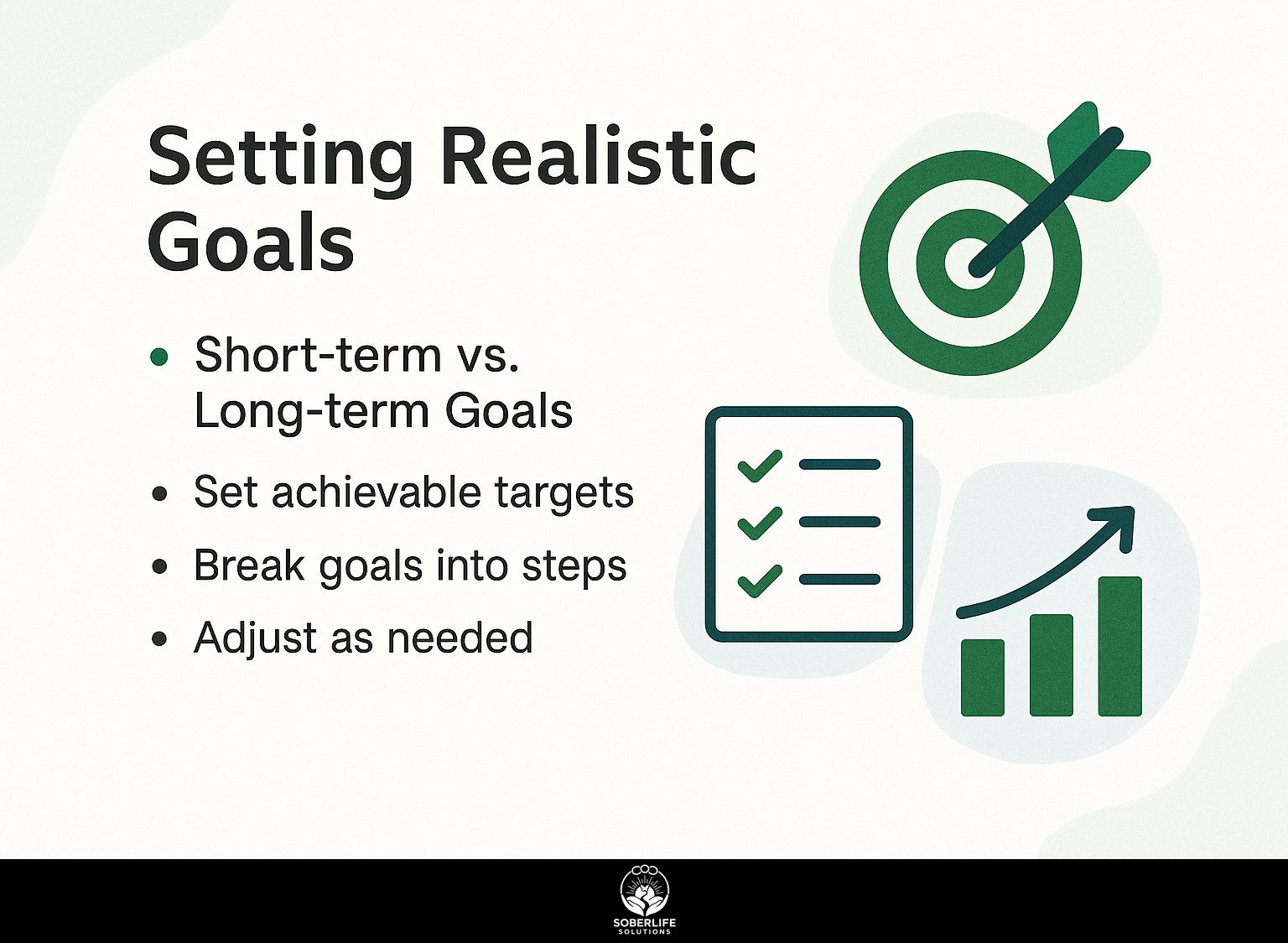
Setting practical goals helps cancer survivors manage their recovery process and gives them a feeling of achievement and purpose in life.
Short-term vs. Long-term Goals
Differentiating between short-term and long-term goals can provide structure and motivation for cancer survivors during their recovery.
Short-term goals could involve daily tasks like going for a brief walk or cooking nutritious meals, which help create a habit. Long-term goals could involve returning to work or achieving a specific weight target within six months.
To maintain focus, consider using a journal or tracking apps like MyFitnessPal to document progress. Setting reminders allows you to reach big goals by focusing on daily, small tasks.
This structured method encourages responsibility, helping recovery feel more achievable and meaningful.
Monitoring Progress and Adjustments
Cancer survivors should frequently monitor their progress and make necessary adjustments to stay aligned with their recovery objectives.
Survivors can keep track of their progress by using tools like MyFitnessPal for recording meals and workouts, which encourages responsibility.
Writing in a journal can help you think about your feelings and health.
Establishing regular check-ins with healthcare providers helps identify any necessary changes in treatment plans or lifestyle adjustments.
It’s essential to remain flexible; if certain strategies aren’t yielding positive results after a month, don’t hesitate to modify your approach for continued improvement.
Frequently Asked Questions
1. What are some common post-treatment challenges that can affect quality of life?
Some common problems after treatment that can affect quality of life include physical side effects, emotional stress, money problems, and adjusting to life after treatment. These challenges can be difficult to cope with, but there are strategies to help improve quality of life.
2. How can I cope with the physical side effects of treatment?
Physical side effects, such as fatigue, pain, and changes in appearance, can greatly affect a person’s quality of life. To handle these problems, talk to your healthcare team and get help from family and friends. Adding healthy practices like eating well and exercising can help with physical side effects.
3. What can I do to manage the emotional distress post-treatment?
Emotional distress is a common post-treatment challenge, as the experience of cancer can be overwhelming and traumatic. Get help from a therapist or join a support group, and take care of yourself by doing relaxation and mindfulness exercises. Surrounding yourself with a positive support system can also help improve emotional well-being.
4. How can I handle the financial difficulties after treatment?
The costs associated with cancer treatment can be a significant source of stress for many individuals. To deal with money problems, it’s important to get financial advice and look into options for financial help. It may also be helpful to prioritize and budget expenses, and to have open communication with your healthcare team about the financial impact of treatment.
5. What are some strategies for adjusting to life after treatment?
After completing treatment, many individuals struggle with adjusting to a new “normal” and finding their place in the world. To handle this challenge, try setting small, doable goals, take part in activities that bring happiness and meaning, and reach out to people who have gone through something similar. Planning and incorporating self-care into daily routines can also aid in the adjustment process.
6. Are there any support resources available for coping with post-treatment challenges?
Yes, there are many support resources available for those coping with post-treatment challenges. These may include support groups, counseling services, and online communities. It’s important to take advantage of these resources and reach out for help when needed. Your healthcare team can also provide information and referrals to helpful support services.

